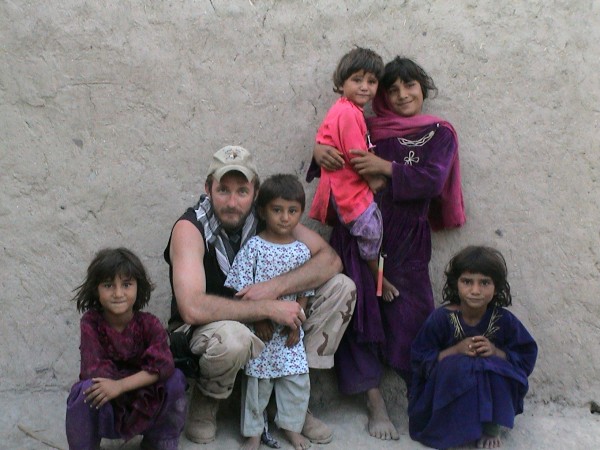Can you cut and paste, some of us are too cheap to get sofrep.
LOL oops. Sorry brother.
How SOF got Screwed by the Conventional Force–A Lesson from Jim Gant

By
Kerry Patton
For years, I have known how bad conventional military leadership ruined any hope for Afghanistan. During the initial invasion, our special operations force did an exceptional job in removing the Taliban from power and forcing Al Qaeda’s Afghanistan base to shatter like a broken vase. But in time, to be more precise, within approximately one year after the initial invasion, conventional military leadership and their wisdom screwed the pooch in country.
For whatever reason, conventional military leaders took over the mission in Afghanistan which was once controlled by the special operations community. I have spoken to some former high ranking DoD officials who have stated that the special operations force was merely meant to shape the battlespace prior to the conventional boots on the ground mission. Sadly, I continue to scratch my head as I had when I first heard this and find myself asking, “And what mission was that?”
In the game of asymmetric warfare (note I do not use the term COIN here as I feel it has become an abysmal failure of a concept), conventional wisdom will not win. You must think unconventionally, or should I say asymmetrically. But to think unconventionally is not what Big Army/Big Department of Defense likes to do.

Major Jim Gant, US Army Special Forces (Ret.) whom some have claimed to be a Section-8, did think unconventionally. He wrote the paper
One Tribe at a Time, which then-General Petreaus ensured all top military leadership read as he and many of his entourage fully respected and understood its value. Unfortunately, many conventional military leaders along with persons a select group within the Special Operations community looked down on Gant and his ideas to win the war in Afghanistan.
The war in Afghanistan started with SOF elements working closely with local indigenous forces but quickly turned into a whack-a-mole game of direct action which caused more damage than good. But to appease persons like Petreaus, DoD implemented half assed programs such as the Human Terrain System (which I was a part of at one point) and Female Engagement Teams in an attempt to show some compliance with the tribal engagement concept Gant believed in.
These programs were utter failures for several reasons however the biggest failure came in the state that contrary to what Gant believed, risk aversion failed to allow coalition members belonging to such entities to actually live outside the wire among the local populace. Gant firmly believed it was critical to get troops outside the wire and to live and work alongside tribal elements.
Some may believe Gant’s idea closely resembled that of the Military Assistant Command, Vietnam—Studies and Observations Group (MACV-SOG). I would agree his concept of asymmetric warfare closely resembled such. But within the DoD, specifically out of US Army Training and Doctrine Command (TRADOC), controversy ensued with some believing such approach was worthwhile while others believed MACV-SOG was not successful and therefore such a concept of warfighting would also not be successful in Afghanistan.
Solely out of speculation, I believe those opposed to the idea of what Gant deemed as Village Security Operations (VSO) necessity in living among the tribes were too scared to take the risk involved. They failed to realize that war in itself is a risk. They failed to realize that if you are not willing to take the risk, you are not committed to actually win.
Pissing contests unfolded between those of conventional leadership who “owned the battlespace” and those within the SpecOps community wishing to see Gant’s idea come to fruition. Sure, he was given the opportunity to do what he believed and he did it well building unprecedented trust among the villagers he worked closely beside. But doing the job well is just another thing that infuriates people who wish to see you fail.
Jim Gant’s successes in Kunar province where he initiated his operations created blowback. In fact, Gant himself became a target not just by Bin Laden himself, but worse, his own fellow soldiers holding leadership positions. In time, Gant would be ridiculed and actually investigated for violating several General Orders which included alcohol consumption in country, sexual contact (with a woman who would later become his wife), drug use, etc.
I know some military leaders do not wish to accept the fact that virtually every special operator will find alcohol in country if they want it. And many will actually consume such beverages. Drug use ranging from prescription abuse to illegal drugs has become relatively common as well which includes the use of steroids. And the rule not to have sex while in country is laughable. Name a unit that includes women who didn’t have at least one of their females return home early due to getting pregnant overseas? (Ok, I am being harsh on that last one but we all have heard or seen it).
Gant became a target and one of the reasons, a major reason, was because he was willing to take a risk and actually do his part to win the war in Afghanistan and in doing so, he was willing to take a twelve man team and live among the local indigenous population. He was a success while in Kunar province.
As noted though, being successful can be career ending in the military. It makes other leaders look bad. And Gant made many look like idiots. Then again, living among locals and bringing peace to a specific area of operation isn’t what too many military personnel want to see. Gant’s newly published book,
American Spartan:The Promise, the Mission, and the Betrayal of Special Forces Major Jim Gant, explains all of this too well. I have been lucky enough to have obtained a review copy of the book.
Today’s war in Afghanistan has become a numbers war. Military leaders get promoted on a quantitative scale, not a qualitative. How many High Valued Targets got killed or captured? How many schools or clinics were built? How much money was spent?
Let that last one sit in for a second. How much money was spent? You think this is a joke but it’s not which is reason conventional units are fighting tooth and nail to begin a new journey in “train, mentor, and advise” operations in places like
Africa. Doing so will ensure they obtain funding they could inevitably lose due to current budget cuts.
Ask yourself when you heard of conventional military personnel going through months of training in cultural advanced schoolings? How many attend courses like Robins Sage? Virtually none of them do. It’s a mission designed for US Army Special Forces, not conventional troops.
Unfortunately, many of today’s Special Forces soldiers could care less about their historic mission of “train, mentor, and advise.” They got used to the direct action mission and their leaders embrace such because again, it’s much easier to showcase success when you have numbers to validate what you did. Make no mistake that direct action missions allow the number game to be played. A cultural war exists within SOF today considering some understand and respect what Gant sought out to do however they are far outnumbered by those who wish to embrace today’s door kicking style of direct action.
Afghanistan is lost and a big part of that is owed to conventional military leadership and their desires to get a taste of the asymmetric game being played in country. A withdrawal of troops is about to begin in the very near future but that does not mean conventional military deployments will seize. The question is however, where will the conventional military go next and will they create more of a debacle in that place as they had in the land of the Pashtun? Personally, I believe that answer is an obvious yes and its disheartening knowing they will be taking the special operations force down the rabbit hole with them.




